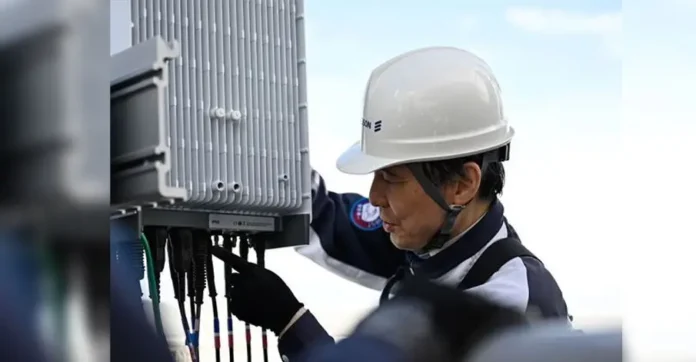
Tokyo – Ericsson has expanded its partnership with Japan’s telecom major SoftBank Corp. through a new commercial agreement focused on supplying 4G and 5G network equipment. Under the agreement, Ericsson will deliver solutions for SoftBank’s low, mid, and high-frequency bands to support ongoing network enhancements and broaden the rollout of 5G Standalone (SA) services.
The latest deal designates Ericsson as a key radio equipment vendor for SoftBank, with a focus on enhancing mobile network coverage across multiple regions including Hokkaido, Tohoku, Kanto, Hokuriku, Tokai, and parts of Kansai. The deployment will utilize the Ericsson Radio System portfolio, aiming to strengthen network quality, capacity, and automation.
In a statement, Hideyuki Tsukuda, Executive Vice President and CTO at SoftBank Corp., said:
“SoftBank will promote network enhancement with a focus on 5G Standalone deployment and AI utilization, delivering an outstanding user experience for both enterprise and consumer customers in Japan. We are confident that adopting Ericsson’s advanced radio technology will further accelerate the enhancement of our network’s quality and operational efficiency with AI.”
Chafic Nassif, Head of Market Area North East Asia at Ericsson, added:
“SoftBank has been at the forefront of connectivity engagement through every generation of mobility. As digitalization ramps up, It will work closely with SoftBank in our strengthened partnership to help drive its digital leadership ambitions through improved end-user experiences, AI and automation. This will also support SoftBank’s role in helping Japan to achieve its wider digital economy aims as a nation.”
As part of the deployment, Ericsson will supply its advanced radio access network (RAN) portfolio, including the compact and lightweight Massive MIMO AIR 3255, which offers up to 35% lower energy consumption compared to earlier models. Additionally, SoftBank will leverage the ultra-wideband AIR 6476, noted for its energy efficiency and high capacity.
The agreement also includes Ericsson’s next-generation RAN Compute baseband units, designed for optimized real-time AI execution. Built on Ericsson Silicon and the Many-Core Architecture (EMCA), these basebands enable enhanced data storage and processing capabilities, allowing more efficient AI deployment directly within the network infrastructure.
The strengthened collaboration is expected to play a key role in supporting Japan’s broader digital transformation initiatives by improving connectivity performance and operational efficiency through cutting-edge automation and intelligent network technologies.





